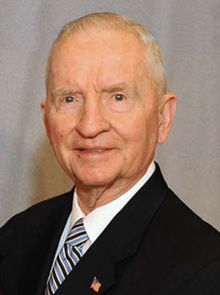Perot deal shows slimming margins for health IT


As a businessman he's first-rate. So, by the way, is his son.
Thus, when H. Ross Perot Jr. agrees to sell the company's branded services business, Perot Systems, to Dell Computer Corp. for $3.9 billion in cash, it's a move deserving notice.
Hardware firms like Dell have to go "up the stack," into services, because basic hardware margins are disappearing under pressure from China. It follows the purchase by HP of Perot's first company, EDS, and its successful integration into HP, making CEO Mark Hurd look like a genius.
Dell is now following Hurd into the services game, and hoping for the same accolades a few years down the road, thanks to Perot Systems' concentration on health IT.
The move of yet-another mainline PC vendor into health IT services also spells an important turn for that sector.
For years health IT was dominated by companies and architectures more out of date than hair bands. Outfits like Perkin-Elmer, Wyse Technologies, and Siemens, which were driven out of the PC market years ago, have made big bucks in health IT. The margins were fatter because every deal was a one-off, with an extended sales cycle.
That is changing, fast. Microsoft is into health IT. HP is into it. IBM is into it. Now, so is Dell.
This is good news for buyers, good news for patients, but bad news for service vendors like Perot. The family, in other words, sold at the top of the market.
The inevitable result of this kind of deal is not that jobs are gained, but that they're lost. Solutions become more standardized, sales cycles speed up and cost less, customization costs more as a percentage of the total deal, and the sector is absorbed into the computing mainstream.
Again, good for customers. Good for patients. Margins that look fat to Dell look too skinny for the Perots. And Dell is now ready to compete more actively with HP and squeeze those margins further.
So what will the Perots do now? Get richer. But they need a goal, a target. Here's one to consider.
Perot Sr. was listed as the 72nd richest American in 2008, with an estimated worth of $5 billion. Depending on how the Perot Systems cash is distributed (Perot was chairman emeritus, Perot Jr. CEO) he might pass the $6.5 billion fortune of James Cox Kennedy.
Why does this matter? Competition. That's what Perot is really all about, and God love him for it.
Kennedy's fortune was built from that of his grandfather, James M. Cox. Cox, like Perot, lost a race for the Presidency, in 1920. Get Perot Jr. past Cox Kennedy and, in at least one Presidential race, H. Ross Perot can still come out the winner.
Just watch out for the wide ride coming up on the outside.